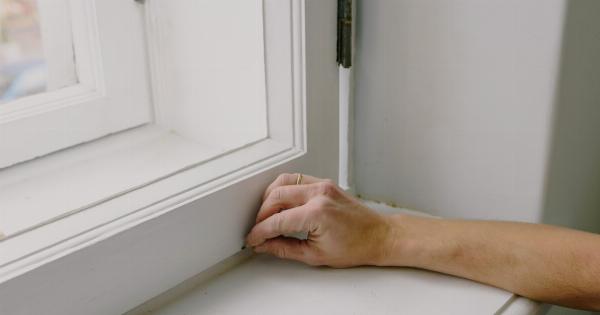Snoring can be a disruptive and frustrating problem, not only for the person snoring but also for their partners or roommates. It can lead to poor sleep quality, daytime fatigue, and even relationship problems.
If you or someone you know is struggling with snoring, consider trying these ten methods to prevent snoring and enjoy a peaceful night’s sleep.
1. Maintain a Healthy Weight
Being overweight or obese can contribute to snoring as it increases the amount of fatty tissue around the throat and neck area. This extra tissue can narrow the airways, leading to vibrations and snoring sounds.
By maintaining a healthy weight through regular exercise and a balanced diet, you can reduce snoring episodes significantly.
2. Sleep on Your Side
Lying on your back can cause the base of your tongue and soft palate to collapse against the back of your throat, narrowing the airway and resulting in snoring. To prevent this, try sleeping on your side instead.
You can use a body pillow or a specially designed snore-reducing pillow to encourage side sleeping.
3. Elevate Your Head
Keeping your head elevated can help open up the airways and reduce snoring. You can achieve this by using an adjustable bed or simply propping up your head and upper body with extra pillows.
This slight elevation can make a noticeable difference in snoring intensity.
4. Avoid Alcohol and Sedatives
Alcohol and sedatives can relax the muscles in your throat and interfere with your breathing, leading to increased snoring. Avoid consuming these substances at least four hours before bedtime to prevent snoring and ensure a better night’s sleep.
5. Establish a Bedtime Routine
Creating a bedtime routine can train your body to recognize and prepare for sleep, reducing the likelihood of snoring.
Aim to go to bed and wake up at the same time every day, avoid stimulating activities before bed, and create a calm and comfortable sleeping environment.
6. Keep Your Nasal Passages Clear
Snoring can also occur due to nasal congestion caused by allergies, a cold, or a deviated septum. To keep your nasal passages clear, try using saline nasal sprays, taking steam showers, using nasal strips, or using a humidifier in your bedroom.
7. Quit Smoking
Smoking irritates and inflames the tissues in your throat and nasal cavity, leading to snoring. By quitting smoking, you can improve your overall health and reduce snoring frequency.
If you need support to quit smoking, consider talking to a healthcare professional.
8. Sleep in a Healthy Environment
Your sleeping environment can contribute to snoring. Keep your bedroom well-ventilated, allergen-free, and at a comfortable temperature. Invest in a good-quality mattress and pillows that support your body properly, ensuring optimal sleep posture.
9. Try Anti-Snoring Devices
There are various anti-snoring devices available in the market that can help reduce snoring. Some popular options include nasal dilators, snore guards, tongue stabilizing devices, and anti-snoring pillows.
Consult with a healthcare professional to find the most suitable option for you.
10. Consult a Healthcare Professional
If snoring persists despite trying the above methods, it is recommended to seek professional advice.
A healthcare professional can assess the underlying causes of your snoring and provide tailored treatment options or recommend more advanced interventions, such as surgery, if necessary.
Conclusion
Snoring can be disruptive and affect the quality of your sleep and relationships. However, by implementing these ten methods, you can significantly reduce or even eliminate snoring.
Remember that it may take time to find the most effective solution for you, so be patient and persistent in your quest for a peaceful night’s sleep.



























